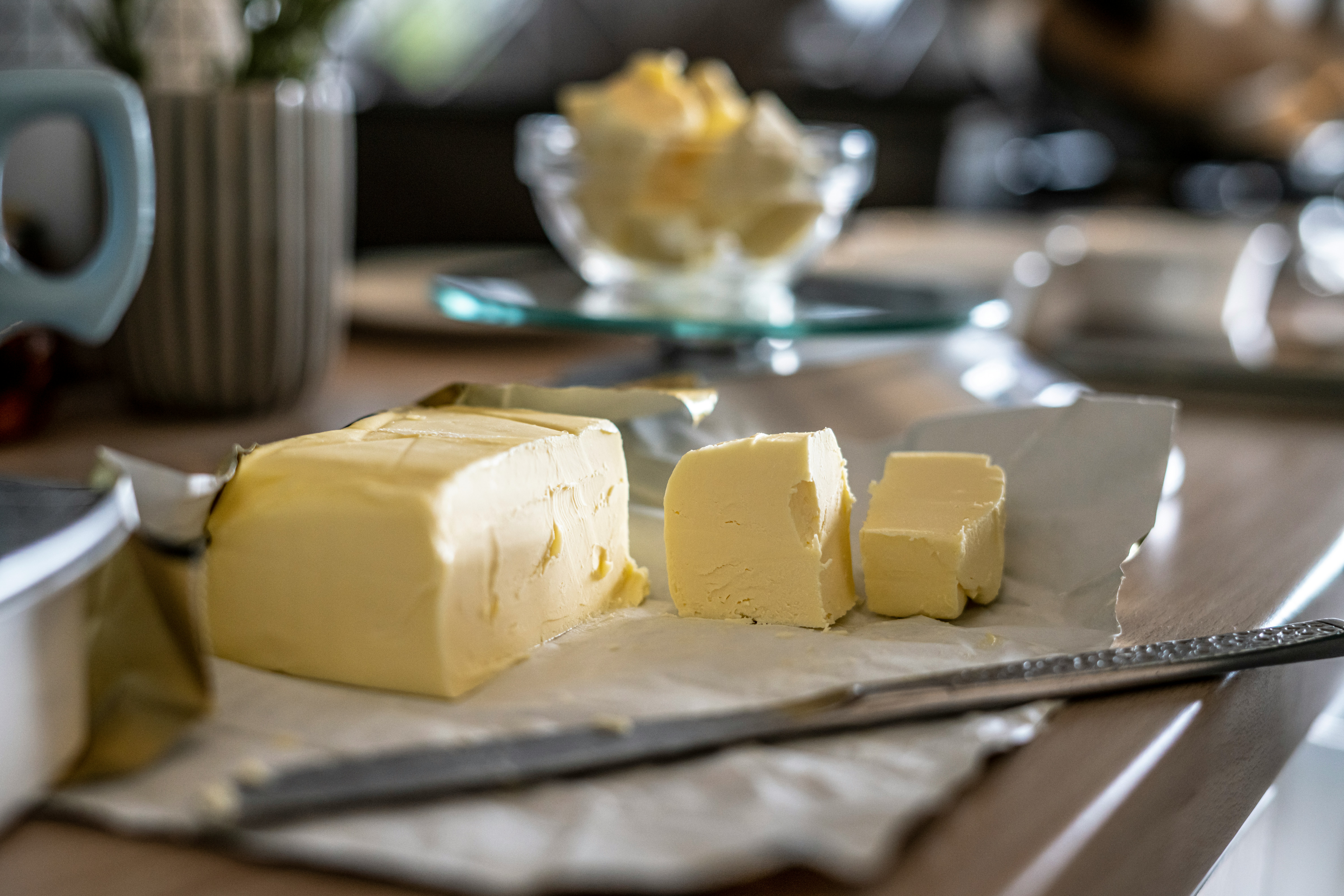Palm oil is a food product. It is sourced from the fruit of the oil palm tree. Such trees grow in many countries of the tropics. But this food product is popular not only in these countries. The product is produced and used in many parts of the world, including the food industry. It is a rather simple and cheap vegetable fat. At the same time, it is loved by many manufacturers because it can significantly increase the shelf life of many products.
In the United States, the most common food use of palm oil is its use as an ingredient in prepared foods. Refined palm oil is very smooth and creamy. In this case, it is perfect for spreading bread. In addition, it has no specific taste or odor. Therefore, the taste of the products made from palm oil does not change. But, despite all the taste qualities, there are many drawbacks to palm oil.
Many studies have shown how harmful this product is to human health. Some of the ingredients in palm oil are beneficial. But nutrition experts say everyone should avoid this kind of oil. Diets high in palm oil are prone to developing various health problems. But you should not be upset because there are many substitutes for palm oil. There are many oils available today that are much safer. More information about this food product and all its secrets can be found.

Palm oil is one of the most common oil products. The oils are obtained from the Elaesis guineensis![]() tree. The Guinea palm is a tall palm tree with fruits and seeds. Palm oil is consumed in food, and its nutritional value is characterized by several features distinguishing it from other vegetable and animal oils. The composition of the product is mainly fats, which is quite natural. The oil also contains some substances that provide it with beneficial nutritional properties.
tree. The Guinea palm is a tall palm tree with fruits and seeds. Palm oil is consumed in food, and its nutritional value is characterized by several features distinguishing it from other vegetable and animal oils. The composition of the product is mainly fats, which is quite natural. The oil also contains some substances that provide it with beneficial nutritional properties.
Let us compare the fatty acid composition of palm oil to other major oils and fats, considering that we are comparing the chemical composition of these oils and fats in their natural state and not at any of the processing stages, including hydrogenation. Palm oil contains both fatty acids – saturated and unsaturated, and the ratio of these fatty acids is nearly equal. So, it is possible to single out oleic and linoleic acids![]() among the ingredients. By the way, humans need the latter – linoleic acid, which is one of the two essentials of human fatty acid.
among the ingredients. By the way, humans need the latter – linoleic acid, which is one of the two essentials of human fatty acid.
In addition to fats, palm oil also contains valuable antioxidants. Among these, one can distinguish carotenoids![]() , recognizable in crude palm oil. The addition of carotenoids protects the cells of the human body. However, these items also improve immune function by other means. Oil also contains phytosterols
, recognizable in crude palm oil. The addition of carotenoids protects the cells of the human body. However, these items also improve immune function by other means. Oil also contains phytosterols![]() in small amounts, with various pharmacy items that have anticancer effects or antioxidants. Vitamins, which are in palm oil in nature, also have antioxidant effects.
in small amounts, with various pharmacy items that have anticancer effects or antioxidants. Vitamins, which are in palm oil in nature, also have antioxidant effects.

Vitamin E![]() is present in palm oil. Besides providing antioxidants, this kind of vitamin also has other crucial functions. Furthermore, this compound works also as an anticoagulant. The substance also impacts the correct functioning of the immune response. A fact to note is that vitamin E is a fat-soluble vitamin. Additionally, one cannot forget that the compound is not synthesized in the human organism, and hence, it needs to be ingested with the meal.
is present in palm oil. Besides providing antioxidants, this kind of vitamin also has other crucial functions. Furthermore, this compound works also as an anticoagulant. The substance also impacts the correct functioning of the immune response. A fact to note is that vitamin E is a fat-soluble vitamin. Additionally, one cannot forget that the compound is not synthesized in the human organism, and hence, it needs to be ingested with the meal.
Nevertheless, this kind of deficiency among the healthy population hardly ever occurs. Moreover, one should also remember that palm oil can impact the body’s vitamin A. Palm oil is rich in carotenes![]() , which are natural pigments. Additionally, those carotenes act as provitamins, i.e., the substances that can be converted in the organism into vitamin A. Such miraculous details certainly have a lot of beneficial functions.
, which are natural pigments. Additionally, those carotenes act as provitamins, i.e., the substances that can be converted in the organism into vitamin A. Such miraculous details certainly have a lot of beneficial functions.
The ingredients of palm oil imply that the product has good effects on human health. After all, vitamins and antioxidants must be found in the diet. However, the issue in question is related to much more complex considerations.
Palm oil contains some other ingredients that belong to the group of harmful components. As a result, the final product, palm oil, is related to multiple controversies. Numerous pieces of research demonstrate that consuming the product harms human health. If you would like to look into the matter more closely and learn about research findings, you can contact a nutritionist and inquire about palm oil in your diet.
Dietary fats are important because they seriously impact the human body. The first thing to say is that, among other things, oils provide essential energy![]() for our lives. In this way, they are required for the most fundamental metabolism processes. Palm oil is known to have the same metabolic effect as unsaturated fatty acids. Glucose metabolism is a major process in our bodies that provides our cells with the energy they need to exist and function. However, some scholars assume that adding palm oil to our diet may not benefit glucose metabolism, which is explained by the risk of diabetes.
for our lives. In this way, they are required for the most fundamental metabolism processes. Palm oil is known to have the same metabolic effect as unsaturated fatty acids. Glucose metabolism is a major process in our bodies that provides our cells with the energy they need to exist and function. However, some scholars assume that adding palm oil to our diet may not benefit glucose metabolism, which is explained by the risk of diabetes.
Palm oil may affect the body's metabolism, body weight, and tissue morphology. This is mainly because oils are found in the membranes of various cells. However, a significant amount of research does not support using palm oil. It has been suggested that consuming palm oil leads to an increase in body mass. As a result, many scientists have concluded that palm oil in food can cause obesity.
At the same time, other studies have associated the use of fats of natural origin, particularly palm oil, with damage to tissues of various organs. Hence, based on the text, it could be concluded that allowing this oil type for one’s consumption might be associated with many problems and degenerative changes.

Palm oil affects the storage of lipids in tissues. However, researchers have varied views on the same. Some feel that the adverse effect that palm oil has on lipid levels is solely about the oxidized, hydrogenated oil. Conversely, fresh palm oil has a relatively neutral effect on blood cholesterol levels compared to other fats and oils. Despite being extremely rich in saturated fatty acids, fresh palm oil does not significantly increase cholesterol levels. Such academicians further indicate that the oil is only detrimental if cholesterol levels are already elevated.
Still, other researchers feel that the oil is avoided since palm oil can raise overall cholesterol and is, hence, much more harmful than other oils and a health risk to the cardiovascular system![]() .
.
The palm oil controversy: here, we are referring to its impact on the cardiovascular system. There is a direct cause that stems from the high content of saturated fats. It is known that under such circumstances, palm oil can affect the blood clotting mechanism. However, here, as well, we have differing opinions: some researchers believe that the oil can cause thrombosis and its concomitant severe irreversible outcomes.
Others argue that, on the contrary, a diet enriched with palm oil can decrease the ability of platelets to aggregate and prevent blood from clotting. There is also information on the palm oil’s ability to increase patients’ blood pressure![]() . In this case, the latter indicates that saturated fats in palm oil hurt it, and, as such, those with a history of heart-related problems should consider replacing the palm fat with something else.
. In this case, the latter indicates that saturated fats in palm oil hurt it, and, as such, those with a history of heart-related problems should consider replacing the palm fat with something else.
Edible palm oil can affect the liver's activity. Saturated fats like palm fat in the diet are related to liver enzymes. The topic is mainly researched in the context of oxidized palm oil. These fats can cause multiple liver disorders and problems. They include liver hypertrophy![]() and induction of liver enzymes. Some papers point to a more favorable influence of palm oil on the liver. It may even exercise some protective functions. The reason lies in the high content of antioxidants. Nevertheless, it concerns the fresh oil.
and induction of liver enzymes. Some papers point to a more favorable influence of palm oil on the liver. It may even exercise some protective functions. The reason lies in the high content of antioxidants. Nevertheless, it concerns the fresh oil.

There is little scientific information about the impact of palm fat on the transport and absorption of nutrients. Some data show that when eating a chlorogenic diet, there isn’t a big enough influence of large palm oil binding in the small intestine. However, other authors have stated that palm fat can have other negative effects on the bowel. The research found a connection between palm oil and intestinal mucositis.
Kidney organ toxicity is the effect of oxidized palm oil organ toxicity. As a research question, the impact of toxins in the palm tree on the kidneys. Toxic substances in palm oil are thought to cause toxicity to the liver and an increased prevalence of cancer. Apart from processing, fats in the diet are believed to increase the incidence of overweight and obesity. Also, being overweight makes the kidneys overwork and filter waste above average concentration. Therefore, those affected with kidney problems should not use processed palm oil.
Palm oil also impacts the reproductive system. It is positive to the use of fresh palm oil, as it enhances sex hormone function beneficially. Reproductive toxicity characterizes palm oil in processed forms. Consuming processed fats is detrimental to the reproductive capability of both males and females. Hydrogenated fats, such as palm oil, make it difficult to conceive and cause various other reproductive problems.
It is known that we always learn new rules associated with proper and healthy nutrition. The data specialists provide us may be confusing for ordinary people looking for the easiest solutions. That is why you may wonder what the deal with palm oil, after all, is. Should you avoid it or, on the contrary, make use of its benefits? You should remember that extremes in your diet are never good. Even if a particular ingredient benefits you, its excess harming your health should not be new. Thus, deciding whether palm oil is a good or bad product is up to you.
Moreover, the kind of palm oil you consume can play a significant role. You can obtain fresh palm oil that has not experienced any additional processing. However, it is also possible to process your palm oil differently. Usually, this kind of palm oil is used in many products that you can find in any grocery store.

Raw palm oil includes valuable food. More of the most beneficial components and vitamins are found in this oil. Although the high content of saturated fatty acids does not benefit the human body, it may cause not much harm. Besides, raw palm oil is associated with many studies concluding its various positive qualities. Unfortunately, raw palm oil is not often used.
The palm oil can be oxidized![]() at different levels as a culinary method. This allows the oil to be used as an ingredient in various foods or as a carrier material. Unfortunately, the process of processing provides no health benefits. Oxidation decreases the quality of the oil and results in the formation of new toxic chemicals in the product. Essentially, once the oil is used in its processed form, it becomes hazardous to the body’s functions. It must also be noted that the oxidized version of the oil is associated with all the adverse health effects discussed.
at different levels as a culinary method. This allows the oil to be used as an ingredient in various foods or as a carrier material. Unfortunately, the process of processing provides no health benefits. Oxidation decreases the quality of the oil and results in the formation of new toxic chemicals in the product. Essentially, once the oil is used in its processed form, it becomes hazardous to the body’s functions. It must also be noted that the oxidized version of the oil is associated with all the adverse health effects discussed.
Many people must have been wondering about the answer to the question of where processed palm fat is used since they were going to escape the hazardous fat in their nutrition. The sad reality is that oxidized palm oil is used by almost all manufacturers that produce food products, and the substance can be found in multiple types of products. One should try to escape eating them in the long run to reduce the risk of the negative impact of palm oil. The list of products in which oxidized palm oil is widely used is provided below. Yet, the ingredient can be found in multiple other products as well.
Processed palm oil can be found in bread spreads. Margarine is a vegetable fat that can replace butter. Although palm oil-based blends are typically used, finding makers who use other fats is also feasible.

Processed palm oil is often used in many types of cakes and pastries due to its advantageous thickness for manufacturers. Additionally, the confectionary industry often employs palm fat due to its low expense. While items containing processed palm oil are tasty, individuals should be aware of their harmful effects on health.
Sweet products often include palm fat. Many candy bars may contain harmful, unhealthy fat that has been processed. This is due to the fat’s low price, sustainability, and excellent combination with cocoa. However, in addition to that, processed palm fat may be found in your range of salty snacks. It is often included in the manufacturing of chips.
Palm oil is a fat extracted from the fruit of a tree growing in tropical areas. It is popular worldwide, and many products include it as an ingredient. Still, its effect on health may be somewhat controversial.
Much research has been conducted on palm oil and its impact on the human organism. Unprocessed palm oil contains numerous essential substances, including fatty acids, antioxidants, and vitamins. Consuming palm oil in its natural form is beneficial for human health. It is recommended to ingest in appropriate doses.
Unfortunately, processed oil is the much more common type of oil. Oxidized palm oil is associated with various health risks, the most serious of which may relate to the cardiovascular system. Thus, limiting processed palm oil is sensible to avoid potential hazards.